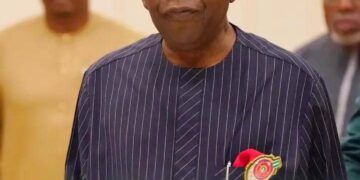By Asuquo Cletus
Insecurity in Nigeria remains a persistent and devastating challenge that continues to cripple the nation’s development and erode public confidence in governance. Despite decades of promises from successive administrations, the harsh reality endured by millions of Nigerians tells a different story.
As terror attacks, kidnappings, armed banditry, and violent unrest escalate across the country, one critical question echoes louder than ever: Where is the Commander-in-Chief?
Nigeria consistently ranks among the most terrorized nations in the world. In the North-East, Boko Haram and ISWAP insurgents remain active threats. In the North-West, bandits continue to attack villages, highways, and farmlands with impunity.
Kidnappings have become a daily occurrence, affecting everyone from schoolchildren in rural areas to commuters in major cities. The South-East is plagued by separatist-linked violence and the ominous activities of “unknown gunmen,” while the South-South battles oil theft and militancy. Meanwhile, the South-West faces cultism, herder-farmer conflicts, and a spike in urban violence.
The 2023 general elections ushered in a new administration under President Bola Ahmed Tinubu, raising hopes for a fresh and effective approach to national security. Yet, nearly two years into his tenure, Nigerians have seen little evidence of real progress. The rhetoric of “renewed hope” is repeated at press briefings, but the situation on the ground continues to deteriorate.
Perhaps most alarming is the normalization of violence. In some parts of the country, attacks no longer make headlines they’ve become so frequent, they’re no longer considered “newsworthy.” Communities are razed overnight, children abducted in broad daylight, and security personnel ambushed with chilling regularity. From Zamfara to Benue, Borno to Imo, bloodshed has become a tragic norm.
For the Nigerian people, the role of the Commander-in-Chief is not just ceremonial it is vital. The President is constitutionally obligated to protect the lives and property of citizens. So what happens when that leadership seems absent, indifferent, or ineffective? What happens when the presidency fails to inspire confidence or act with the urgency the moment demands?
Ekpenyong Solomon, a concerned citizen, voiced his frustration “Insecurity in Nigeria is more political than anything else. We watch the government negotiate with terrorists while innocent civilians are left unprotected. If the government were serious, this would not have escalated this far.”
A soldier stationed in the North-East, who requested anonymity, shared a damning account:
“We are willing to serve and defend this country, but we are being failed by the system. We lack modern equipment, logistics, and motivation. Leadership is absent, and corruption has crippled the military hierarchy.”
These are not isolated opinions they reflect a growing national disillusionment with how security is being managed. Despite the billions of naira allocated annually for defense and internal security, the results are consistently disappointing. It has become evident to many that Nigeria’s insecurity crisis is not solely about capacity but about political will.
President Tinubu, like his predecessor, swore an oath to protect and defend the Federal Republic of Nigeria. That oath must now translate into action visible, decisive, and unrelenting action. The time for empty condolences and generic reassurances is over. Nigerians demand accountability and results.
Nigeria needs more than policies and press conferences. It needs leadership leadership that is present, empathetic, and courageous. The President must convene a national security summit, revamp the intelligence and security architecture, invest in modern warfare capabilities, and—perhaps most critically—eradicate the entrenched corruption weakening the military and police.
In moments of national crisis, true leadership is not defined by speeches behind bulletproof glass. It is defined by presence, empathy, accountability, and action. Over 200 million lives hang in the balance.
It is often said: “He who cannot stand the heat should get out of the kitchen.” If President Tinubu is unable to confront this security emergency with the urgency it requires, then Nigerians have every right to question his capacity to lead.
Nigeria is bleeding. Her people are crying out. The time to lead is now.












